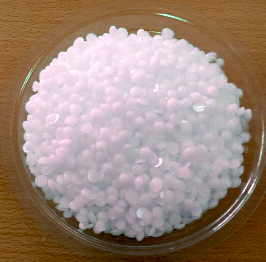Cetearyl Alcohol aka “the good guy”
This post contains affiliate links. If you click and make a purchase, I may receive a commission. Thanks.
I would like to start by saying that Cetearyl Alcohol is NOT BAD for your skin. It is actually quite a good ingredient for dry skin. There is this big misconception going on about alcohols in skin care products. We all heard that alcohols are bad for our skin and that we should avoid them. But this is only partially correct. There are different types of alcohols and they behave differently. The “bad” alcohols are usually short-chained, tend to evaporate quickly. You may know them under names: Ethanol alcohol, Propanol alcohol, Isopropanol alcohol, Isopropyl alcohol, Benzyl alcohol.

These are the ones you should avoid. However, there is another type of alcohols, called fatty alcohols, that is great for skin care products. Examples can find on ingredient labels include cetyl, stearyl, and Cetearyl alcohol. These are long-chain alcohols that are usually derived from the fat (palm oil or coconut oil). Fatty alcohols have a higher amount of carbon content and it gives them completely opposite nature to the other alcohols (let’s admit it - they don’t even look like alcohol, more like wax). Fatty alcohols are actually hydrating and moisturizing to the skin and hair. They work by attracting water into the skin and by creating a barrier to prevent water loss. Not bad hey?
So to answer everyone's questions:
Is Cetearyl alcohol bad for the hair? No, it helps to hydrate and lubricate your hair.
Is Cetearyl alcohol bad for the skin? Again, the answer is no way. Cetearyl alcohol helps to hydrate your skin and lock moisture in.
Is Cetearyl alcohol irritating? It shouldn’t be. This ingredient can be found even in baby products so as long as it is used within recommended range it should not irritate the skin. But have in mind that everyone’s skin is different and if it suits most it still might not suit you.
Cetearyl alcohol: properties, benefits, uses
Cetearyl alcohol is a very common ingredient. It is used in many beauty products ranging from soaps, shampoos to face and body creams. It is also one of the main ingredients in cosmetics such as foundations, lipsticks and mascaras. This is due to Cetearyl alcohol's versatile properties.
- If you read about Cetearyl alcohol online you will see that it is classed as an emulsifier, meaning that it stops emulsion from separating into its oil and liquid components. However, in practice, Cetearyl alcohol is a weak emulsifier. It does aid in the emulsion process but I would recommend adding some additional emulsifier to the formula. This way you will make sure that oil will not start floating on top of the surface of your product after a while. Considering all that, I would call Cetearyl alcohol a co-emulsifier.
- Let’s get to the good part now, shall we? Cetearyl alcohol is a great and effective thickener. It adds thickness and texture to liquid products which makes it easier to apply to the skin (or hair). So far I am very happy with the results I get using Cetearyl alcohol as a thickening agent.
- It also increases foaming capacity (important for soaps, shampoos, conditioners and many other personal care products);
- helps to stabilize foams;
- gives product nice texture, helps the product to look and feel better.
- has emollient properties which hydrate and lubricate skin (and hair) leaving it soft and smooth.
Substitutes for Cetearyl alcohol will depend on what function you want the substitute to do. It will be very difficult to find an ingredient with the same properties. The most common substitute that I’ve heard of is using wax. Wax is a great thickener. However, products with wax will not feel good on the skin. While Cetearyl alcohol thickens, provides good product slip and an almost silicone-like feel.
Cetearyl alcohol is best for products targeted for dry skin but will work well for all skin types.
Cetearyl alcohol: usage
Using an emulsifier is quite important. Cream that is not emulsified properly will sit on the surface of the skin and will not be effective. Recommended usage level of this ingredient is 0 - 5% of the product formula. You should never exceed 35%. When used in small doses this ingredient is great and helps dry skin. But high doses may lead to skin irritation.
* Cetearyl alcohol is more gentle than cetyl alcohol alone and, therefore, is often used in mild formulations and baby care products.
* Cetearyl alcohol is best for products targeted for dry skin but will work well for all skin types.
* Cetearyl Alcohol is generally classified as being of no to low hazard or toxicity (EWG). http://www.ewg.org/skindeep/ingredient.php?ingred06=701236#.WtRfV4jFLIU
